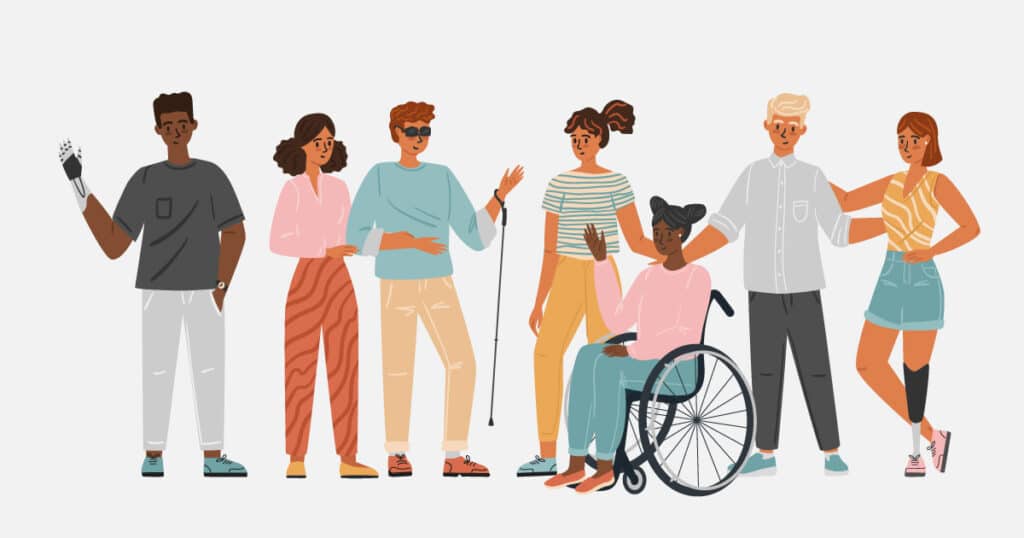How to Build a More Disability-Inclusive Culture

Photo credit: iStockphoto.com (Wanlee Prachyapanaprai)
What do you envision when you think of someone with disabilities?
Odds are you picture someone in a wheelchair or someone who wears dark glasses and walks with a cane or … You get the picture.
But the reality is that, in the workplace, 62 percent of disabilities are non-apparent. You can’t tell just by looking at your colleague, which means you can’t easily know what they need to participate in the workplace fully.
This was one of the striking facts Tiffany Yu, a TEDx speaker and CEO and founder of Diversability, an award-winning social enterprise to amplify disabled voices, shared during the most recent Justice, Equity, and Inclusion talk hosted by the Conferences for Women, State Street, and The Boston Globe.
Non-apparent disabilities, Yu explained, “are physical, mental or neurological conditions that are not immediately apparent but can impact someone’s movements, senses, or activities.
These can range from mental health issues to learning and attention issues such as ADHD to neurodiversity issues such as autism to substance abuse disorders – and more recently, long COVID.
Of course, you can’t ask someone what their disability is or how they became disabled. But, says Yu, you can ask if they have everything they need to participate fully and how you might help.
More specifically, here are six of the recommendations, based on Accenture research, Yu shared for building a more inclusive culture.
- Have role models – disability leaders who are transparent about their disabilities and lead by example.
- Offer flexible working arrangements.
“It took a pandemic for us to realize that we could make working from home or working remotely possible.” But there are other accommodations that can help everyone fully participate in the workforce.
For example, she said, closed captioning on Zoom benefits not only people who are hard of hearing but people who process information best by reading it and people for whom English is a second language.
- Offer employee resource groups to lend the power of community.
- Ensure fair pay and economic empowerment.
“We need to value people’s expertise, pay them fairly, and give them the economic self-sufficiency needed to survive and thrive.”
- Allow the freedom to innovate.
“About 75 percent of disabled employees have thought of an idea for their company that would add value to their bottom line,” said Yu.
- Incorporate mental well-being policies for everyone.
“People with non-mental health disabilities experience about five times more mentally unwell days than our peers,” said Yu.” And so being able to have that mental health support offered within the company and make the barriers to getting mental health support is helpful.”

Interested in listening to Tiffany Yu’s entire talk? Check out the replay as part of the Conference for Women’s Justice, Equity, and Inclusion Series.